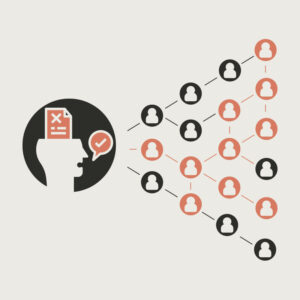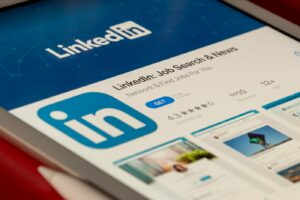Beyond the infamy and borderline lurid headlines was a thoughtful, productive, and inspiring team that forever changed my life and career.
The most questions I get about my career? My time at WeWork.
“What was WeWork like?”
“What was Adam like?”
“What happened there during the pandemic?”
“Was it really a sham of a company?”
I’m always more than happy to provide answers to said questions (in order: Amazing, more complicated than the TV show suggests, we worked our asses off, no). But over a year after the company, I feel like now’s a good time to reflect on my remarkable WeWork tenure.
My First Gig in the “Private”, For-Profit Sector Was a Gift
In March of 2018, I started at WeWork during what you could call its peak “hype” era. My role was running its global social media and member communications teams (20+ people in NYC, London, Berlin, São Paulo, Beijing, and Seoul).
On my first day, I have no problem disclosing how intimidating it was to walk into the storied and jaw-dropping Chelsea HQ. Back then, the company was front-page news; everyone who mattered was talking about us.
Until then, I worked exclusively for nonprofits and political campaigns, so a “hyped” startup was entirely new terrain. I had the impression the for-profit world was cutthroat and humorless. That may be true at plenty of companies, but that wasn’t my startup experience.
Here’s something that never gets discussed in the myriad WeWork stories. I met some of the nicest people in my entire career there. From the start, I engaged with remarkably smart, kind, dedicated professionals.
Our mission (and one we took very seriously) was to make the office a much better place to spend over 2,000 hours per year. WeWork gave small and medium-sized companies what they needed: Access to professional, well-appointed office and conference space without the financial burden of long-term leases.
A reminder that 2018 was decidedly pre-COVID, a bygone era when coworking was in its infancy (and still somewhat controversial). The commercial real estate community definitely did not embrace the fact that WeWork enabled early-phase (and small; some companies do stay that way) companies to scale up or down without renegotiating massive lease agreements.
I felt like I hit the jackpot. I worked for a hot company with a nice group of whip-smart, mission-driven people. That doesn’t mean my job was easy. Working for a startup is exciting, but it can be grueling.
The processes that didn’t exist needed to be established. Structures had to be put in place. Vendors: vetted, hired, and measured. But — and anyone who’s had a similar experience can verify this, too — the lack of structure allowed me and my team to be aggressive and experimental. It was thrilling, honestly.
A quick example: An early stated goal was to increase the company’s Facebook page to 1M followers (up from 800,000). Did we do it? Yes, and we did it in two months. Ask any social manager how uphill a climb that is. Also, we tripled our Instagram followers (from about 200,000 to 600,000) in two years.
The hours and pressure were intense. We were doing big things, and that meant commitment to the job. I remember being able to tell within 5 minutes whether someone would be at WeWork for years or months. Either you got it, or you didn’t.
Despite its reputation, WeWork was the polar opposite of the “bro” culture everyone assumes it was. I get there was some problematic behavior there (and I’m not defending any of that). Still, that behavior did not define the entire company, and certainly not the people I engaged with.

Our members were doing inspiring work that changed people’s lives (and saved them as well). Then former Vice President Biden’s cancer moonshot initiative was a WeWork member. Another member was a French biotech company that discovered the loss of taste and smell were common COVID symptoms.
Then, gravity came for us. For me and for a lot of us, it was a dark, untenable time. It’s not something I’d want to relive.
The IPO That Wasn’t Led to a Healthy Restructure
WeWork’s failure to go public is probably taught in business schools today. Adam left. The IPO sank.
If you’re looking for stories about drama, legal battles, and infamy, I’ll direct you to a well-acted but otherwise unremarkable TV show (and one I wouldn’t describe as entirely “accurate”; poetic license doesn’t do that show justice), a couple of books on it, and approximately a billion words in print.
The massive layoffs were incredibly painful, but for the next three years, I learned more about business than most people learn in a lifetime.
Nearly the entire leadership team left and was replaced with new, more business-focused people. The shift in culture felt a bit like whiplash. It was a strange time to be there, but we needed it.
For my part, I was asked to stay, with more responsibility and proximity to the Softbank team. Together, I worked with our investors to help turn the company around. I may never be so lucky to do something like that again. From it, I gained leadership skills and knowledge I never imagined in my wildest dreams I’d have.
We dove in. We innovated plans and strategies to come out on top. Initially, we started to see real progress hit the bottom line. The year? 2020.
I think you all remember what happened then.
The WeWork COVID Pivot Was Epic
How does a coworking company survive and what role does it play when everyone stops going outside, let alone to an office?
Groping with a global pandemic is much tougher than surviving a failed IPO.
But thedigital team rose to the occasion.
We Used Social To Tell Important Stories
We told stories about our members and the incredible things they did to help during the pandemic on social media. Whether those were medical research companies like those I mentioned above or catering businesses that converted their spaces into food distribution centers, we used our platforms and resources to make sure everyone who followed WeWork knew about it.
And we did it quickly and on the cheap with repurposed iPhone video and original Zoom interviews. Our feeds were full of great people doing great things. It wasn’t hard. WeWork had (and has) amazing members.
We Used SEO to Plan for a Post-COVID Workplace
We developed our first truly unified SEO strategy with original, native content. Engaging listicles, with titles like “Top ten coworking offices in NYC,” were directed at professionals looking for office space after the pandemic. Those articles landed on the top of the SERPs.
We Launched New Products
Our team helped implement and launch WeWork’s daily and monthly offerings (WeWork On Demand and All Access). We did everything from help map the user journey (including the UI design), and facilitated all the digital promotion for the launch. With so many companies ending their leases early, we knew those new products would be needed, and fast.
Creative Can Be Subjective. Results? Those Never Lie.
Those strategies delivered spectacular impacts in a very short time.
- Our social accounts continued to engage people when no one cared about offices.
- SEO became the most revenue-positive marketing channel we had (roughly a 15-to-1 return!).
- All Access and On Demand continue to be successful products.
It was challenging to transform a team used to in-person collaboration into one that did everything over Zoom. But, as I said, the people at WeWork were among the best I’ve ever worked with. Even during a time of extreme uncertainty, the team buckled down, created some of the best content, and delivered the results we had to date.
I’ll never forget that.
WeWork Correctly Predicted the Future of Work
Today’s WeWork is much different from the rocket ship I joined in 2018. While I miss those early days, it needed to change to become a profitable, sustainable business.
Any time someone asks me, “How is WeWork still a thing?” I have a very simple answer: It’s a great product! People want to work in those spaces. Provided the company solves its long-term lease issue (all signs point to success in that area), it’s going to be around for a long, long time.
For all the negativity surrounding its founder, WeWork was ahead of its time. Flexible office space was almost unheard of when WeWork started. Now, it’s the model most companies are embracing.
It was wild to be on that ride. I’m incredibly proud to have been a part of the good, bad, and ugly of it all.
I wouldn’t change a thing.



